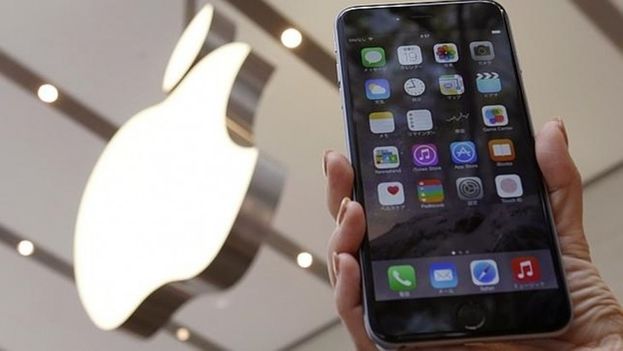
![]() 14ymedio, Generation Y, Yoani Sanchez, Washington, 5 March 2016 — When they returned his mobile phone all his contacts had been erased and the card with the photos was gone. Stories like this are repeated among activists who have been detained, over whom an iron vigilance is maintained with the complicity of the Telecommunications Company (ETECSA), the technology arm of repression in Cuba. An entity that should take note of the rebuff Apple has dealt the FBI in the United States, by refusing to access its clients’ data.
14ymedio, Generation Y, Yoani Sanchez, Washington, 5 March 2016 — When they returned his mobile phone all his contacts had been erased and the card with the photos was gone. Stories like this are repeated among activists who have been detained, over whom an iron vigilance is maintained with the complicity of the Telecommunications Company (ETECSA), the technology arm of repression in Cuba. An entity that should take note of the rebuff Apple has dealt the FBI in the United States, by refusing to access its clients’ data.
For decades, Cuban society has become accustomed to the government’s failing to respect individuals’ private spaces. The state has the power to delve into personal correspondence, to display medical records in front of the cameras, to air private messages on television, and to broadcast phone conversations between critics of the system. In such a framework, intimacy doesn’t exist, one’s personal space has been invaded by power.
People see as “normal” that the phones are tapped and that in the homes of opponents hidden microphones capture even the smallest sigh. It has become common practice for ETECSA to cut off dissidents’ phone service during certain national events or visits from foreign leaders, and to block the reception of messages whose contents upset them. This Orwellian situation has gone on for so long, that few take note any more of the illegality involved and the violation of citizens’ rights it entails.
The feeling of constant supervision has come to affect the way we speak, filling it with whispers, gestures and metaphors, to avoid saying those words that could get us into trouble. To the extent that few mention the names of Fidel or Raul Castro, substituting a gesture over the face as if touching a beard, or making slanted eyes, or placing two fingers on one’s shoulder to allude to “them,” “the power,” “the government,” “the Party.”
The limits of the state to obtain private information are currently at the center of an international debate, sparked by the United States government demand that the technology company Apple unblock the telephone used by a terrorist, who participated in a shooting in California where 14 people died. The discussions have risen in tone between those who brandish the needs of the security agency, and those who see it as a danger to violate the rights to protected data.
These kinds of questions are very far from Cuban society, where the need to reconquer the privacy lost over more than half a century of the interference of power in every sphere of daily life is never publicly raised. Even keeping a private diary, closing the door of a bedroom, or speaking softly, are frowned upon by a system that tried to replace individuality with massification, and to eradicate intimacy in the promiscuity of shelters or barracks.
Apple fears that by creating software to unlock its phones, it cannot avoid the government or hackers from collecting the private information of millions of innocents. It knows that any power is insatiable with regards to the information it wants to have about others, hence the law should curb and rein in those excesses of interference that characterize all governments.
The dispute over privacy and security will continue for a long time, because it is the eternal tension between the limits of social space versus personal space. The clash between the interests of any nation and that fragile but essential part that makes us individuals.
